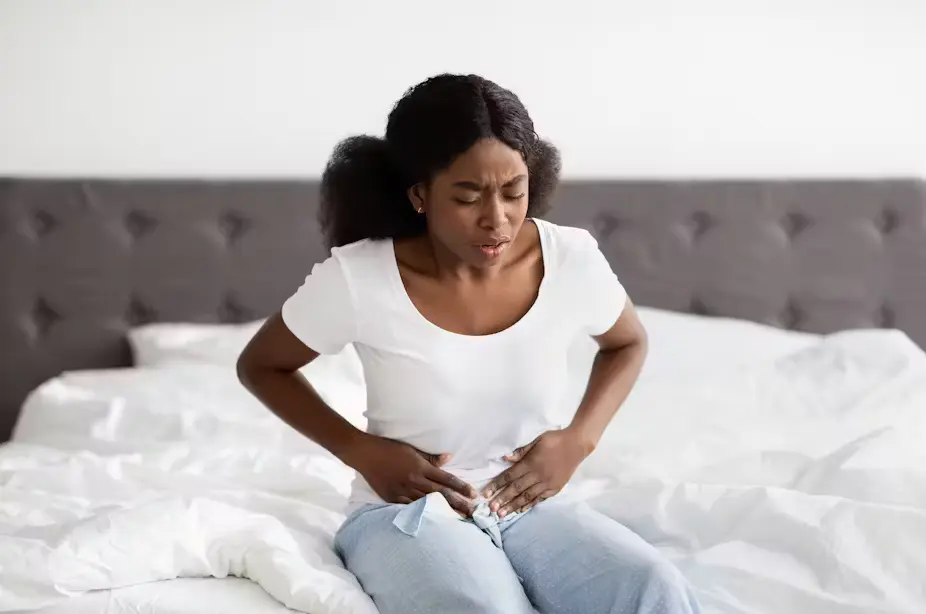
The Truth About Period Poops: Causes, Tips & Relief
Periods can bring more than just cramps, bloating, and mood swings. Many people also notice changes in their bathroom habits. If you’ve ever found yourself rushing to the toilet more often or experiencing softer stools around your period, you’re not alone. This phenomenon is often nicknamed “period poop.”
Although it might feel awkward to talk about, it’s a completely normal part of the menstrual cycle for many. Understanding what causes it (and how to manage it) can make your period a little easier to deal with.
What Exactly Is Period Poop?
Period poop simply means changes in your bowel movements before or during your period. For some, that means diarrhea or softer stools. For others, it’s constipation before the bleeding starts, followed by looser stools once menstruation begins.
These changes aren’t random, they’re linked to hormonal shifts that affect not just your uterus, but also your digestive system. That’s why your gut may act differently during this time compared to the rest of your cycle.
Why Does It Happen? (The Science Behind Period Poops)
Hormonal Shifts
Your menstrual cycle is controlled by hormones, and two key players are prostaglandins and progesterone.
- Prostaglandins are chemicals that help your uterus contract so it can shed its lining during your period. But here’s the catch, they don’t just act on the uterus. They can also make the muscles in your intestines contract more, speeding up digestion and causing looser stools or diarrhea.
- Progesterone rises in the second half of your cycle and then drops sharply before your period. High progesterone can slow digestion (sometimes causing constipation), while the drop can lead to a sudden change in bowel habits.
Changes in Diet & Cravings
Many people crave sweets, salty snacks, or fatty foods during PMS. Unfortunately, foods high in sugar, caffeine, or grease can stimulate the gut, leading to more frequent bathroom visits.
Stress and Mood Changes
Periods don’t just affect the body, they can also affect your emotions. Stress and anxiety can trigger the gut-brain connection, making bowel symptoms worse. If you feel more irritable or anxious before your period, your digestion might also feel off.
Water Retention & Bloating
Hormonal changes can cause your body to hold onto water, making you feel puffy or bloated. This bloating can put pressure on your digestive system, leading to discomfort and irregular bowel movements.
Common Symptoms of Period Poop
- More frequent bowel movements than usual.
- Softer or looser stools.
- Cramping before or during bathroom trips.
- Constipation before your period starts.
- Gas and bloating.
- A sudden urge to go shortly after waking up during your period.
Is Period Poop Ever a Problem?
In most cases, period poop is normal and temporary. However, you should talk to a doctor if you experience:
- Blood in your stool (not from menstruation).
- Severe diarrhea that lasts more than a few days.
- Extreme abdominal pain that interferes with daily activities.
- Weight loss or changes in bowel habits outside your menstrual cycle.
Sometimes, persistent bowel changes around your period could signal underlying conditions like:
- Irritable Bowel Syndrome (IBS).
- Endometriosis.
- Inflammatory Bowel Disease.
Tips to Manage and Reduce Period Poop
1. Diet Adjustments
- Eat more fiber: Whole grains, fruits, and vegetables help regulate bowel movements.
- Limit caffeine & alcohol: Both can speed up digestion and worsen diarrhea.
- Avoid greasy and very sugary foods: They can irritate the gut.
- Stay hydrated: Water helps keep digestion smooth and prevents constipation.
2. Heat Therapy
A heating pad or hot water bottle on your stomach can relax your muscles, both in your uterus and intestines, helping relieve cramps and discomfort.
3. Gentle Exercise
Activities like yoga, walking, or stretching improve blood flow, ease cramps, and help digestion work more smoothly.
4. Track Your Symptoms
Using a period tracking app can help you see patterns in your bowel changes. If you know what to expect, you can plan your diet and activities accordingly.
Myths about Period Poop
- “It means something’s wrong” — Not necessarily. It’s often just a natural effect of hormones.
- “Only some people get it” — Actually, it’s quite common, though experiences vary.
- “It’s caused by poor hygiene” — False. It’s related to internal hormonal and digestive changes, not cleanliness.
Conclusion
Period poop may not be the most glamorous topic, but it’s a normal and common part of the menstrual cycle. Hormonal changes, diet, and stress all play a role, and for most people, it’s nothing to worry about.
By making small lifestyle adjustments, like eating more fiber, staying hydrated, and managing stress, you can reduce discomfort and make your period a little easier to handle. And most importantly, remember: you’re not alone in experiencing this.
FAQs
Q: Why do I get diarrhea before my period?
A: Prostaglandins speed up muscle contractions in your intestines, making stools looser.
Q: Is period poop dangerous?
A: Usually no, but see a doctor if symptoms are severe or unusual.
Q: Can birth control help?
A: Yes, hormonal birth control can sometimes reduce prostaglandin production, easing symptoms.
Q: Does exercise make it worse?
A: Intense exercise might trigger bowel movements, but light activity often helps.
All Categories
Recent Posts
Why SDG 4 Cannot Be Achieved Without Ending Period Poverty
Tags
Give them a helping hand
Every donation fuels our mission to combat period poverty. Your generosity brings us closer to menstrual equity.
+234-909-482-1642
inquiries@blossomflow.org




